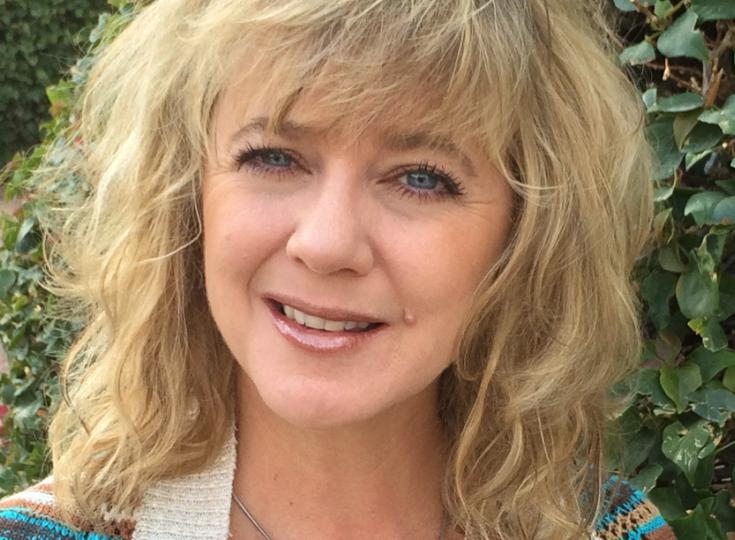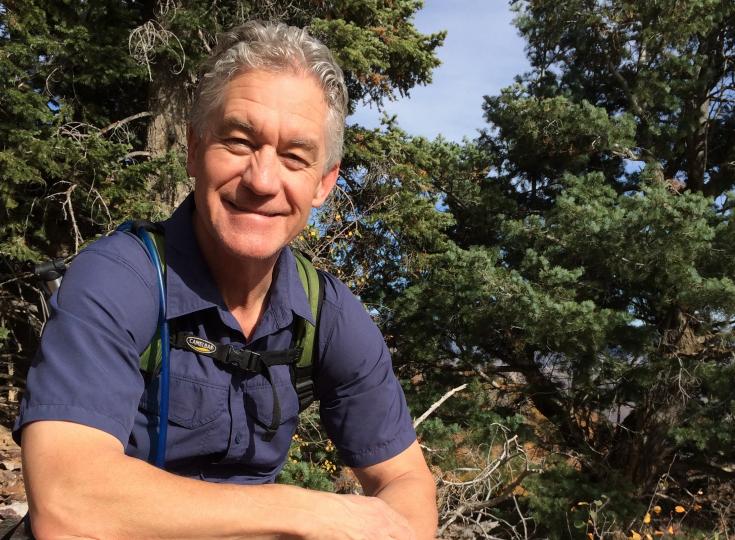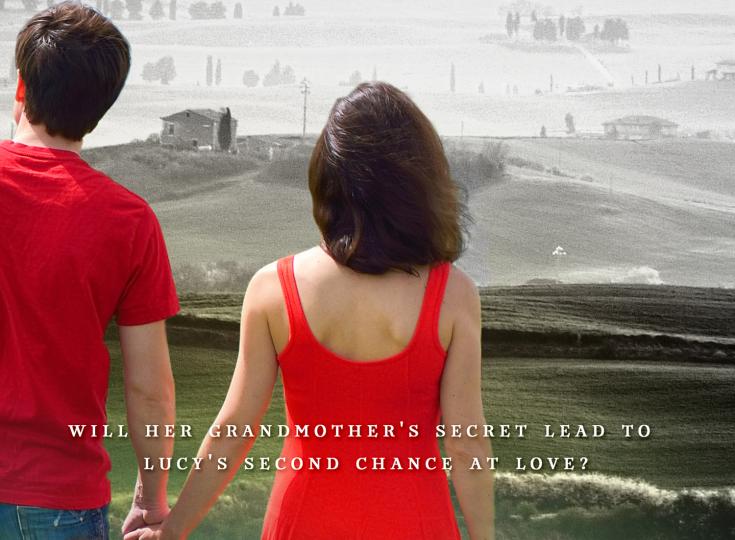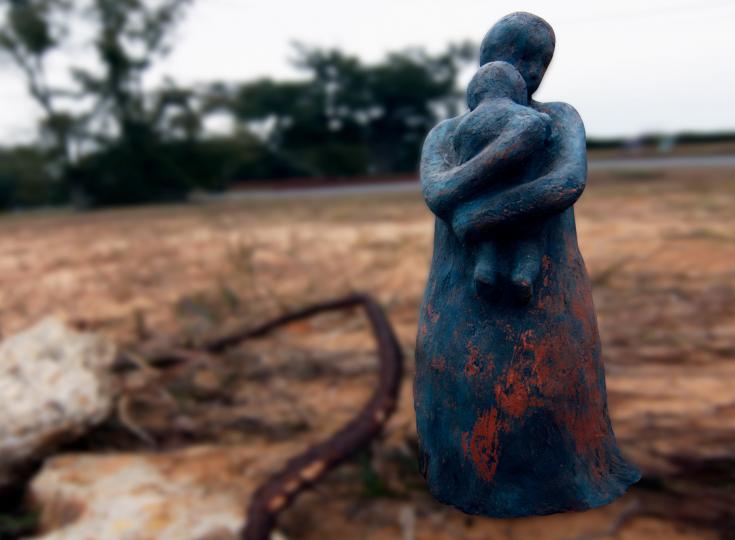Joseph John - Writing Techno Thrillers
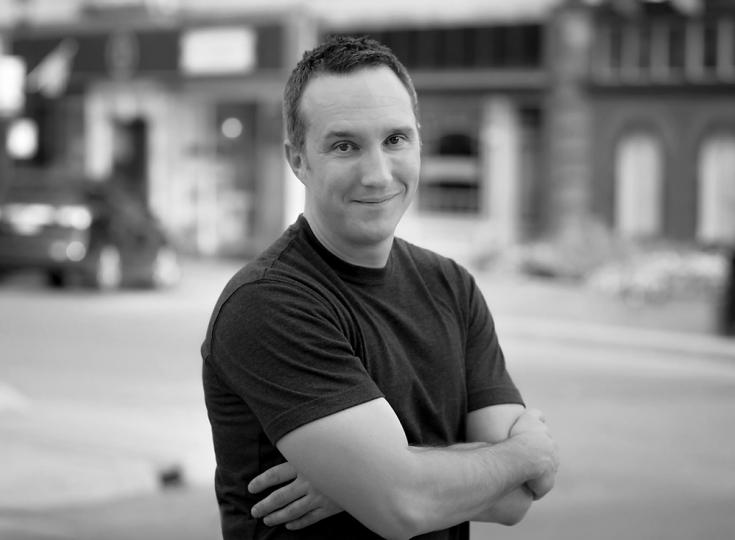
Joseph John spends a lot of his time walking, whether it is “walking the area” of the United States Military Academy at West Point or exploring Italy with his wife. In between all the walking he manages to write techno thrillers with impossibly high stakes, like his novel “The Eighth Day” which was recognized as a 2016 National Indie Excellence Award Finalist. Today we talk to Joseph about his love for speculative fiction, why he had to do a complete rewrite and where he finds inspiration for his plots.
Please introduce our readers to The Eighth Day. What is it all about?
The Eighth Day is a Sci-Fi techno-thriller set in New York City, 2041. It begins when our unsuspecting hero receives a warning from a stranger. “Nothing you know is real. Your name isn’t Shawn Jaffe, you’re not an investment broker, and you’re not from Ohio.” But the stranger is murdered before he can explain.
Shawn isn’t sure who he can trust. Even his own memories are suspect. Someone is watching him, controlling him, using him.
Veteran Detective Sam Harrington is assigned to the case, and when Shawn vanishes, it’s up to Harrington to figure out what’s going on. He’s pitted against adversaries who are cunning and ruthless and will stop at nothing to ensure he doesn’t interfere with their plans.
The tagline for The Eighth Day is “death is not the end,” so of course this comes into play. That’s when the threads of Shawn’s reality begin to unravel. To figure out who he really is and why they are after him, Shawn will have to stay one step ahead of his pursuers, an enigmatic organization that seems to know his every move before he makes it.
But the stakes are higher than one man. This is a future where we’ve begun meddling with the human genome and taken evolution into our own hands. Our humanity is on the line, and on the eighth day, it could be the beginning of the end.
Give us three good-to-know facts about yourself.
I am a second-degree black belt and certified instructor of Tae Kwon Do.
As a cadet at the United States Military Academy at West Point, I spent over 200 hours walking the area (https://en.wikipedia.org/wiki/United_States_Military_Academy#Walking_the_area), the most in my class.
I’m currently stationed in Vicenza, Italy and having the time of my life. Uncle Sam hooks us up with a four-day weekend every month.
Best. Uncle. Ever.
My wife and I use that time to cross another line off our bucket lists. There’s so much to see and do in Italy, and we haven’t even got to the rest of Europe yet! We’re also blogging our travels. If you’re interested or planning your next vacation, you can read about our adventures and recommendations at https://americiao.wordpress.com.
You are a combat veteran and have served 17 years active duty. How did your experience in the U.S. military influence your work?
I’ve tried to keep the military out of my writing. I know, I know. They say to write what you know. But I live, breathe, and eat the military for most of my waking hours. I don’t want to spend my imagination in the military, too. My protagonist is a stockbroker—or so he thinks, wink wink, nudge nudge—and Sam Harrington is a bitter old detective.
That being said, my time in the Army definitely seeped into the story. In The Eighth Day, the US is at war with Brazil, and I reference a previous war with Mexico—homage to the fact that we’ve never accurately predicted where the next Great American Conflict(TM) will be.
It also has some Vietnam flashback scenes, à la “Danforth, pull up flank! Watch out for Charlie up in the trees!” That’s a quote from Eric Cartman for the South Park unsavvy.
I suppose you might say The Eighth Day has more than its fair share of military references—for example, one of the main antagonists served in the Marines—it just doesn’t have a strong military bent.
Why do you write techno-thrillers? What is it about technology that fascinates you so?
I love speculative fiction. I was a big fan of Michael Crichton. I’m also fascinated by the direction technology takes society. It’s amazing how much the world has changed since the advent of the internet and the proliferation of cell phones. My generation, Generation X, was in the unique position to grow up without either of these technologies and then have their lives consumed by them as young adults.
I see how this technology affects interpersonal relations, international connectedness—even government and politics—and it makes me wonder what’s in store for us next. What new invention will change society on a fundamental level? And in the end, will these incremental changes be for the good of mankind, or will they have some dark, unforeseen consequence?
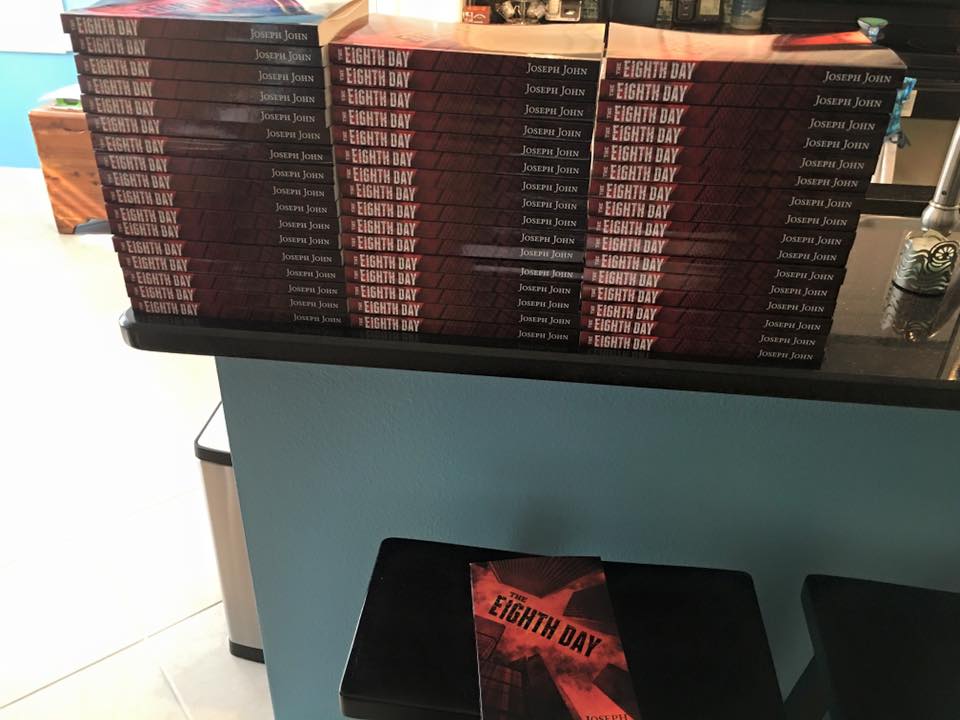
Shawn's whole identity, his idea of who he is, is shattered in one moment in your book. How important do you think is a sense of identity to humans?
I think a sense of identity is critical. When you get down to it, who we are—what we’ve done, who’ve we’ve impacted, our legacy—is all we have. I think just about everyone identifies with more than their physical selves. Like, I don’t think of myself as the meat-bag named Joe. No, I have this whole system of beliefs and values built on experience. I’ve done things. I’ve changed people’s lives, both for the better and the worse. I’ve done things I’m proud of and things that I’m not so proud of. I’ve got my fair share of regrets—we all do, but these are the things that make us who we are.
But what if they didn’t? What if none of those memories or experiences were real? Who would I be then? What would I do with my life? Would I keep up the charade because it was the me I knew and remembered, or would I start anew? Would I even be able to start anew?
In the immortal words of Marty McFly, “Whoa, that’s heavy.”
Say the Eighth Day gets a film adaptation, which actors would you like to see as Shawn Jaffe and Detective Harrington?
Nowhere in The Eighth Day do I mention what Shawn looked like. Not his hair, not his build, not the color of his skin. I do this on purpose, because I want readers to develop their own mental image of the protagonist. When I point it out to them, most people don’t even realize I’d done it. They don’t realize it, but they have this image in their head that came entirely from their own imagination, and I think that’s pretty damn cool.
Rather than tell you who I’d pick to play Shawn, I’d be more interested in knowing who readers picture.
As for Sam Harrington, I kept his description fairly generic as well, for the same reason. I use one sentence to describe Sam Harrington: “Streaks of gray had invaded his once black hair, and his deeply lined face had about the same consistency as sandpaper.” I’ve had readers tell me they pictured everyone from Tom Selleck to Morgan Freeman, and I’d be fine with either of them playing Sam.
In The Eighth Day, you paint the story from different character viewpoints. Why did you pick this approach?
Two reasons.
One, for the suspense. There’s nothing like building anticipation until events reach a boiling point and then switching to another character’s point of view, leaving the reader wondering how the hell Stuart Redman is going to make it out of the Stovington plague center; that’s an example from The Stand if you missed it. Stephen King is a master of suspense, and I love him and hate him for it.
The second reason is that I prefer character-driven stories, and to understand and empathize with characters, I think it’s important to get into their heads and figure out what makes them tick and what their motivations are. That’s hard to do when everything is told from the protagonist’s point of view.
You keep your readers guessing throughout the book. How did you pull that off? Did you work out the entire plot before starting on the book?
No. I made it up as I went. When I started writing, I had a vague idea of where I wanted to go, but no route planned on how to get there. I suppose that’s one way to keep readers guessing; when the author doesn’t know what’s in store for his plucky hero, there’s no way to telegraph the next move.
That’s how Stephen King writes, but in retrospect, I’d have been better served to plot it out first, like Dean Koontz does. Because after I completed the first draft, I realized there was so much I needed to fix.
For one thing, I had some major plot holes and structural problems with the story. I owe some of these insights to the countless books on story structure I’ve read since, but three books in particular stand out. They were: Story, Substance, Structure, Style, and the Principles of Screenwriting by Robert McKee; Save the Cat! by Blake Snyder; and The Writer’s Journey: Mythic Structure for Writers by Christopher Vogler. McKee’s and Snyder’s books deal mostly with screenwriting, but the principles of story still apply. They made me see not only the structural flaws, but also that I’d created a passive protagonist and a weak antagonist that was definitely not a worthy adversary for my hero.
I did a complete rewrite, and it was pretty damn daunting. It’s a totally different story and about a thousand times better than the first draft. And next go-round, I’m definitely plotting it out.
The Eighth Day is set 25 years in the future. How much do you think would the world have changed in 25 years?
Look at how much has the world changed in the last 25 years. Think about some significant events of 1991. The first Iraq war began and ended. Joseph Harris coined the phrase “going postal.” Freddie Mercury died. Rodney King happened. The Soviet Union ended. The first website and the 14.4 kbps modem was introduced; to download a 1GB file would’ve taken you just under a week. Microsoft released MS DOS 5.0. Air bags and the first color scanner were invented. Nirvana popularized grunge music. Pee Wee Herman jerked off in a movie theater, Mike Tyson raped his girlfriend, and Jeffrey Dahmer ate a bunch of dudes. Classic movies like Terminator 2 and Silence of the Lambs were released. Compact discs were catching on, VHS and Betamax were duking it out for center stage in living rooms everywhere. Kids played outside, rode their bikes, and interacted face-to-face on a regular basis.
It was a strange and crazy world. What will it look like in another 25 years? I have no damn idea. So much has changed since 1991, I think the world will be almost unrecognizable to us by 2041. It won’t be the singularity, but I think we’ll be well on our way. The Eighth Day is just one man’s guess, and I wouldn’t be surprised if I’d vastly under-estimated the changes yet to come.
Where do you find inspiration for your plots?
Where’d don’t I find inspiration for my plots? It could be a word or a phrase I hear from a coworker or someone on the street. News headlines. A “what if” moment as I’m going about my day. A book or a movie or a television commercial. A thought, a scent, a sight, a sound. Most likely, it’s some combination of all of the above.
For example, I came up with the idea for The Eighth Day while I was on vacation at Disney World. My wife and I bought these hot dogs that cost like twenty bucks each and tasted like rubber. We sat down at this miniature table built for three-foot-tall people with our knees up around our ears and tried to gnaw our way through them. That’s when this guy walked by and dropped his napkin on the counter next to us. At first, I thought he was handing me some kind of note, but no, it was just a plain old napkin and he was too lazy to detour the extra three feet to throw it in the trash can. But I got to thinking, what if there was a message on the napkin? What if I flipped it over, and he’d written something like, "they’re watching you" on the other side? I checked. He hadn’t. But that innocuous encounter was the catalyst that eventually led to my novel.
What are you working on right now?
I’m working on a trilogy set in the same universe as The Eighth Day. It takes place several hundred years in the future in a world where corporations have usurped the US government. Everything is privatized, from health care to militaries to parks and transportation services. The gap between the haves and the have-nots has grown tremendously, and the middle class no longer exists.
It’s in the cyberpunk genre, and the protagonist is the son of the CEO of Roman Biogenics, which readers of The Eighth Day will be familiar with. It builds on the themes and ideas of that novel and takes them to extremes.
Where can our readers read more of your work or interact with you?
I’m all over the interwebs:
E-mail: [email protected]
Website: http://www.josephjohnfiction.com
Facebook: https://www.facebook.com/josephjohnfiction/
Twitter: http://twitter.com/josephjohn
GoodReads: https://www.goodreads.com/josephjohnfiction
Pinterest: http://www.pinterest.com/josephjohnpins/
LinkedIn: https://www.linkedin.com/in/josephjohnfiction
Thanks so much!
